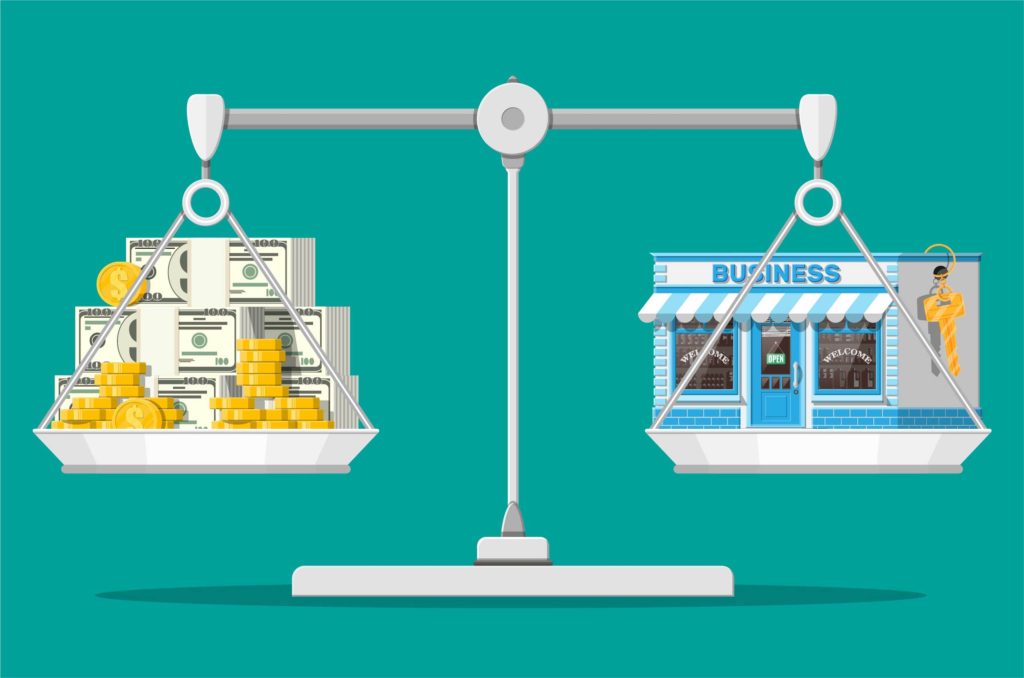Are you one of those people who bought a house after getting your stable full-time job? Depending on when you bought, this may be a good or not so good thing. On one hand, you’ve chained yourself to a mortgage for the next 30 years and maybe got a low fixed interest rate. On the other, you may have bought when housing prices are the highest during a period of economic uncertainty. In either scenario, for a single family home in California you probably paid up to $1,000,000 for that house and that is an astronomical number for the amount of money you make. At first I thought, I can’t afford a house. Then I remember to change a few key words in that story to: How can I afford a house? Realistically, doing the math I hated the numbers, how it made me feel, the prison-like sensation of death by a thousand interest payments. Banks are not dumb. This is a model that’s existed for a very long time and people have forgotten the sub-prime mortgage crisis in 2008, at least those who did not experience it first-hand. That’s all the books I’ve read seem to talk about as an example of a seemingly small event having enormous consequences. Hindsight is 20/20 but the people living through it had no idea what was going to happen. No raindrop blames itself for the flood, no snowflake blames itself for the blizzard as Zig Ziglar likes to say. Yet the truth remains, that we all have this belief in owning the place you live is one of the American dreams. We sacrifice our futures for it. We defend it with our endless hours of work, repeated in circles over and over again until we die. I’ve found a better way and I just spent $697 on an online course to learn how. I decided to write as I learn about this subject so you guys can have the gold nuggets for free. I was drawn in by their promise of replacing your W-2 income with passive income or profits from a business. This is done by purchasing a business that’s already making a profit. Let’s get some clarity first.

Remember, It’s Just a Tent.
Let’s reframe your perceptions for a second to break your hypnosis of the American dream. A house is basically a tent with high-tech gizmos. Some people call it a box and that box is where humanity started doing its greatest thinking. We began imagining things that turned into ideas, that turned into houses, that turned into cities, plumbing, electricity, refrigeration, and bathrooms, don’t forget bathrooms. A place you can isolate from the world and have everything you need in one place so you don’t have to go out and place yourself in needless danger. We’ve even solved the need to go out and socialize by implementing technology like social media to solve our need for connection. At the end of the day though, it’s still a permanently affixed tent. When making decision that alter the course of your life, never forget that it’s just a tent, a possession, and not life itself. If you understand this lesson and still looking for ways to afford a fancy tent, continue reading.

Market and Trend Analysis
According to this training course on how to buy a small business, we all know baby boomers are retiring. Apparently about 20% of them own a business. They will be looking to get out within the next decade and may not be aware that they can sell a business. The other statistic is that out of all the businesses that go on sale in one year, only about 10% of them are sold which leaves 90% of businesses unsold. So huge buyer’s market that provides potential returns greater than any real estate rental income I’ve found because the real estate market isn’t in the ‘buy’ part of the cycle just yet. This is a better way to increase your income and replace your job at the same time. Using the excess money to pay a mortgage if you so desire is the beauty of this plan. It’s scary though, don’t get me wrong. I’ve been listening to audiobooks on how to buy businesses and some days I mistook it for an audiobook on learning Mandarin. Once this bitcoin boom cycle is over, this will be the primary plan moving forward to increase cashflow and savings rate.

Time To Think
This is the part when you can start asking yourself the basic questions. How much does this business need to make? What are you goals? What is your timeline? What kind of business would you enjoy? What are your interest or hobbies? Do you want to work in this job yourself or hire someone else? What location does it need to be in? It is a service or product? Do you want it to be online or storefront? There are just many businesses for sale that it helps to start having this written down so you can narrow down your choices. Once you can get that list down to 50-100 businesses then it’s time to proceed with research. Apparently, all you need to start is a good forensic CPA (a guy who can find lies in the numbers), an attorney that specializes in mergers & acquisitions (make sure they’re a specialist), and a banker or most likely SBA (Small Business Administration) to apply for financing. They offer a 10% down 90% finance terms which is way better than a real estate’s 20% requirement. At half the cost and double the cashflow, it sounds like something worth learning. That’s really all you need to get started. As I learn more about this course, I will continue to post what I learn periodically. So far it appears to be a solid plan and a lot of my concerns stem of a lack of self-confidence. I feel intimidated by the terms at times but everyone’s got to start somewhere. I’m sure I’ll have to face several rejections but I’ve written my goals and dates down for each milestone in this process. I intend to make an offer on a business by the end of this year and will own one by next year. Stay tuned and let this idea sink into your subconscious.
